An ailing Flórez still makes it a great night at Carnegie
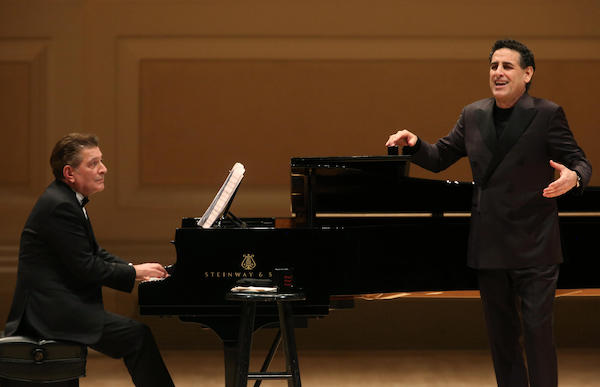
It came billed as a sort of master class in singing classic Italian arias. But the recital by tenor Juan Diego Flórez and pianist Vincenzo Scalera on Wednesday night at Carnegie Hall became a demonstration of something that was possibly even more fundamental: how to win when you don’t have your best stuff.
The stage setup for the recital included a grand piano (opened slightly on its short stick), a piano bench, and a tall stool with a small stack of tissues on it. After performing his first number, Gluck’s “O del mio dolce ardor” from Paride ed Elena, Flórez took a tissue and dabbed his nose with it, explaining to the audience that he had a cold but he didn’t want to cancel and disappoint his fans (who made their presence felt, and heard, all evening).
That might explain the singer’s somewhat understated approach to Paris’s ardent yearning for his lady love, Helen of Troy, and to the two 17th-century songs that followed, Caccini’s “Amarilli, mia bella” and Carissimi’s “Vittoria, mio core!”
In her lively and detailed program notes, writer Janet E. Bedell cited these pieces as part of the regime of beginning voice students, used to develop legato, breath support, agility, phrase shaping and other necessary skills. Deprived of his maximum vocal power on this night, Flórez compensated by demonstrating these skills in abundance.
For his part, pianist Scalera, a veteran vocal coach and recital collaborator, steered a middle course between self-effacing accompaniment and the kind of orchestra-in-a-box that can boost a singer to new heights of expression. Clearly some discretion was called for when partnering a slightly impaired singer, but within those limits Scalera played colorfully and with vigor all evening.
The program’s first half concluded with a Rossini set, three pieces from the composer’s post-operatic collection Péchés de vieillesse (Sins of Old Age) and two opera arias. “L’esule” (The Exile) admired the beauties of a faraway country but swelled at the thought of the poet’s homeland. The dancing “La lontananza” (Distant Love) also reached across distances, sending birdsong (in the piano) and graceful phrases to greet the poet’s beloved. Scalera played the piano solo “Danse Sibérienne,” a sort of whimsical polka with a sparkly run or two, with appropriate flair.
In an aria from the dawn of Rossini’s career, “Deh! tu m’assisti amore” from Il signor Bruschino, Flórez and Scalera exchanged tender phrases before the singer’s voice crescendoed and flew high in the closing bars. The presentation grew more operatic in the cavatina-cabaletta “La speranza più soave” from Semiramide, as Flórez prowled the stage, gesturing theatrically and alternating vocally between leisurely melismas and blazing coloratura.
Indeed, the singer’s dramatic salesmanship carried the day in the program’s operatic second half, projecting the lover’s desolation in Donizetti’s “Linda! Si ritirò!…Se tanto in ira agli nomini” from Linda di Chamounix, and making the listener believe in the high notes even when their wattage was down a bit in “Inosservato penetrava…Angelo casto e bel,” Matteo Salvi’s brilliant contribution to the completion of Donizetti’s Il duca d’Alba.
Piano solos by the operatic masters Verdi and Puccini were rare items, composed as favors or for special occasions. Pianist Scalera preluded these two composers’ vocal selections on this program with solo pieces: Verdi’s brief, embellished nocturne “Romanza senza parole” (Romance without Words) and Puccini’s delicately woven “Foglio d’album” (Album Page), in light but nicely colored renditions.
Verdi arias included the Duke of Mantua’s devil-may-care arietta “Questa o quella” and, for maximum contrast, “L’émir auprès de lui m’appelle…Je veux encore entendre” for the warrior-lover Gaston in Jérusalem, by turns defiant, desolate, and exultant with high C’s.
“Vainement, ma bien-aimée,” the lover’s dawn song from Lalo’s Le roi d’Ys, swung in mood between sadness and jaunty optimism as the piano plucked an imaginary mandolin and the singer sculpted the poetic phrases.
Another lover, named Romeo, greeted the dawn in Gounod’s “L’amour! L’amour!…Ah, lève-toi, soleil” from Roméo et Juliette, whose balcony scene began in passionate darkness, but swelled in rising lines to the tenor’s high note, supported by (at long last) a quasi-orchestral roar from the piano.
This might have made an upbeat ending for a recital—literally on a high note—but singer and pianist had darker emotions in store, with Puccini’s “Ecco la casa…Torna ai felici dì” from Le Villi. Tortured by remorse over abandoning his lover, the singer yearned in soaring lines for their happier days together, only to land back again in bitter despair, closing with a choked sob and a low note, forte.
The audience appreciated this stark drama even more loudly than they did Romeo’s exultation, and the singer rewarded them with seven brief encores: Pianist Scalera joined him for the easy legato phrasing of Salvatore Cardillo’s “Core n’grato” and the long lines and swelling drama of Ernesto de Curtis’s “Tu ca nun chicagne.” Flórez accompanied himself on guitar in Peruvian criollo songs by Chabuca Granda, Carlos Gardel and Tomás Méndez. Finally, Scalera returned to accompany “No puede ser,” an impassioned number from Pablo Sorozábal’s zarzuela La tabernera del Puerto.
Plucking his guitar and crooning the high lines of Chabuca Granda’s “José Antonio,” Flórez invited listeners to sing along. Many did, lustily.
Carnegie Hall presents singer Michael Feinstein and pianist Jean-Yves Thibaudet in “Two Pianos: Who Could Ask for Anything More?” with music by Gershwin, Rodgers, Porter, Debussy, and Bernstein, 8 p.m. Dec. 13. carnegiehall.org
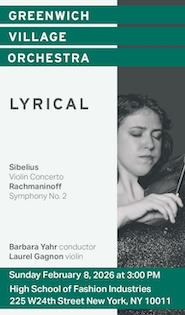
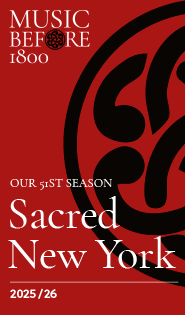
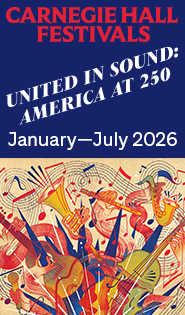
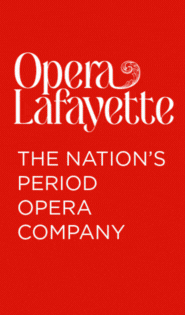

Posted Dec 01, 2023 at 12:24 am by B.-L. (Les) Lee
My wife and I were enchanted by such pristine and sunbeam-like voice of Juan Diego Florez’s. This was the seventh occasion for us and we felt so privileged. His voice is getting stronger.
Posted Dec 01, 2023 at 10:46 am by Frank De Ligio
Thanks for this lovely review. So appreciate knowing what we heard as encores.
Posted Dec 02, 2023 at 8:05 pm by Galina
Thank You Carnegie Hall for such amazing concert. Juan Diego Flórez and pianist Vincenzo Scalera performed beautifully.
Posted Dec 05, 2023 at 9:25 am by Ana & Robert Cook
We had the pleasure of hearing Juan Diego and Vincenzo in Kansas City just a few days earlier. Due to his cold he revamped his program just hours before the performance. Still, even at his moderated level the vocal skills were much in evidence. His anecdotes and charm won the day along with a well deserved standing ovation.